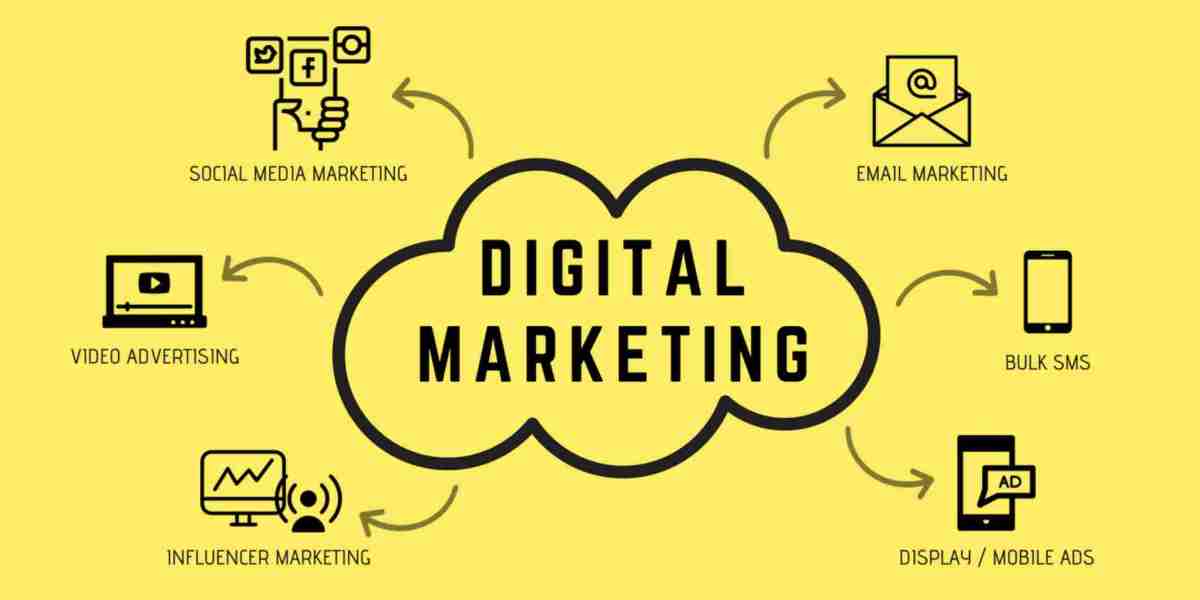What is Digital Marketing?
Digital marketing refers to the use of digital channels, platforms, and technologies to promote products or services to consumers. Unlike traditional marketing, which relies on mediums like print, TV, or radio, digital marketing leverages platforms such as search engines, websites, social media, email, and mobile apps.
This form of marketing allows businesses to reach their target audience where they spend much of their time—online.
Key Components of Digital Marketing
Several key components make up a strong digital marketing strategy:
1. Search Engine Optimization (SEO)
SEO is the process of optimizing a website to rank higher in search engine results pages (SERPs). Higher visibility means more organic traffic, which can lead to increased sales and brand awareness.
2. Content Marketing
Content marketing focuses on creating valuable, relevant, and consistent content to attract and engage a clearly defined audience. Blogs, videos, infographics, and ebooks are common content formats used in this strategy.
3. Social Media Marketing
Social media platforms like Facebook, Instagram, LinkedIn, and Twitter are used to promote content, interact with audiences, and build a brand presence. Social media marketing helps in community building and customer engagement.
4. Pay-Per-Click Advertising (PPC)
PPC allows businesses to place ads on search engines and social media platforms. Advertisers pay a fee each time their ad is clicked. Google Ads and Facebook Ads are popular PPC platforms.
5. Email Marketing
Despite being one of the oldest digital marketing methods, email marketing remains highly effective. It involves sending personalized messages to potential and existing customers to inform, engage, and nurture relationships.
6. Affiliate Marketing
This is a performance-based marketing method where businesses reward affiliates (partners) for bringing in customers through their promotional efforts.
7. Influencer Marketing
Brands collaborate with influencers—individuals with a significant following on social media or blogs—to promote products or services authentically to a target audience.
Benefits of Digital Marketing
Digital marketing offers numerous advantages over traditional marketing approaches:
- Cost-Effective
Digital marketing is often more affordable than traditional methods. Small businesses can run campaigns within tight budgets and still achieve meaningful results.
- Measurable Results
Tools like Google Analytics, social media insights, and email tracking software allow marketers to monitor campaign performance in real-time.
- Targeted Reach
With digital marketing, businesses can target specific demographics, interests, locations, and even behaviors, ensuring messages reach the most relevant audience.
- Global Audience
Digital platforms enable brands to reach a worldwide audience without the constraints of geographical boundaries.
- Higher Engagement
Interactive formats like polls, quizzes, live videos, and stories can engage users, encouraging two-way communication and brand loyalty.
Trends Shaping the Future of Digital Marketing
The digital marketing landscape is constantly evolving. Here are some key trends influencing the field in 2024 and beyond:
1. AI and Automation
Artificial intelligence is revolutionizing how businesses analyze data, automate tasks, and personalize customer experiences. Chatbots, predictive analytics, and automated email workflows are just a few examples.
2. Voice Search Optimization
With the rise of smart speakers and virtual assistants, optimizing content for voice search is becoming increasingly important.
3. Video Marketing
Video content, especially short-form videos on platforms like TikTok and Instagram Reels, continues to dominate user engagement and conversion rates.
4. Sustainability and Ethical Marketing
Consumers are more conscious about environmental and social issues. Brands that highlight sustainability and ethical practices gain trust and loyalty.
5. Privacy and Data Protection
With stricter data privacy regulations (like GDPR), marketers need to be transparent and responsible in how they collect and use user data.
Creating a Successful Digital Marketing Strategy
A successful digital marketing strategy involves careful planning, execution, and continuous optimization. Here are a few steps to get started:
Define Your Goals – Whether it’s brand awareness, lead generation, or sales, clear goals help direct your efforts.
Know Your Audience – Understand your target demographic’s needs, preferences, and online behavior.
Choose the Right Channels – Not all platforms will work for every business. Focus on where your audience spends their time.
Create Quality Content – Valuable and consistent content builds trust and authority.
Analyze and Adjust – Regularly measure results and adjust your strategy based on performance data.







